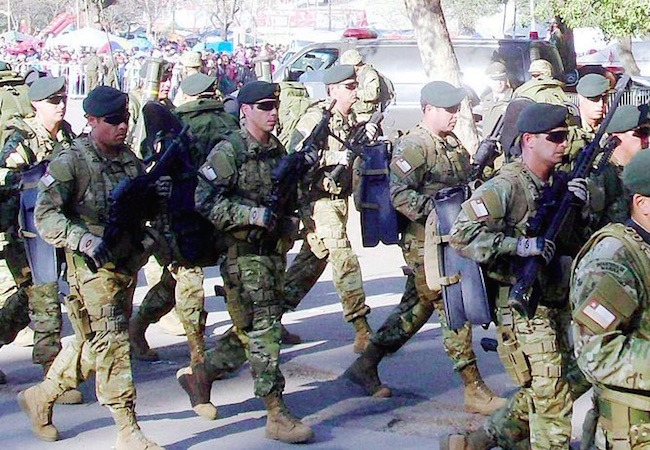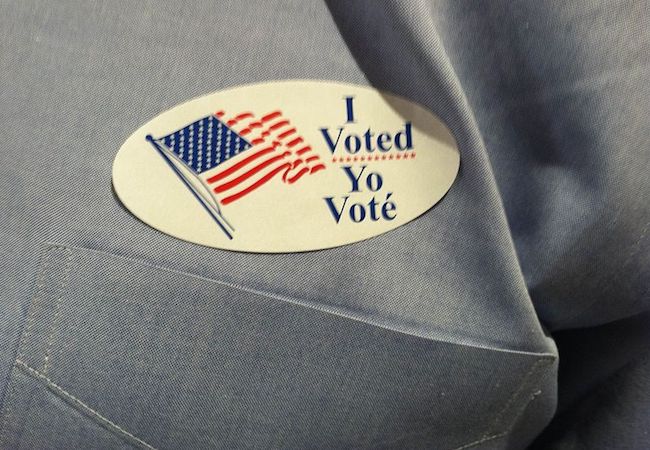
By Julieta Pelcastre
The Chilean Military is recruiting indigenous men and women to join its ranks, part of an effort to represent the country’s diversity in the Armed Forces.
The campaign is being promoted by high-ranking officials, including Undersecretary of the Armed Forces Gabriel Gaspar. Currently, indigenous people account for about three percent of all recruits, the Diario Uchile newspaper reported on December 16.
“This initiative is the result of a cultural change towards respecting and integrating the various peoples into the national reality,” said National Defense Minister Jorge Burgos during his opening speech at the “Seminar on Indigenous Peoples and Defense” at the Joint Center for Peace Operations of Chile (CECOPAC). The seminar was held on December 3 at the General René Schneider Military Base, in La Reina.
“Until we value cultural diversity and recognize ourselves as a multicultural society, Chile can never legitimately aspire to development,” Burgos added. The government “will foster and promote the rights of indigenous peoples and will adapt its internal mechanisms to effectively implement the international treaties that Chile has ratified on this issue, as well as ensuring that indigenous peoples have access to their natural resources.”
Officials from the Chilean Army, Navy, and Air Force attended the conference. They were joined by leaders from indigenous groups, academicians, and representatives from the Armed Forces of Canada and New Zealand, who spoke about their respective experiences with recruiting efforts to increase diversity.
Addressing a historic debt
The campaign to increase diversity within Chile’s Armed Forces will address the country’s “historic debt” with indigenous people, according to a December 2 press release from the Ministry of Defense.
“The Ministry of Defense has wanted to be a pioneer in this field and therefore established a team focused on inclusion to generate internal policies that effectively advance not just the indigenous issue, but also issues related to gender, disabilities and sexual diversity,” Burgos said during the December 3 seminar.
Historically, Military institutions, particularly the Army, have been viewed by many Chileans as a mechanism for social mobility, which has attracted indigenous people to the Armed Forces.
The Armed Forces has been recruiting more minorities and women into its ranks for at least 25 years.
In 1989, presidential candidate Patricio Aylwin joined with representatives of indigenous peoples from throughout Chile in a “New Imperial Agreement” in which three commitments were established, according to the Ministry of Defense.
The first commitment was the creation of an indigenous law, Law 19,253, and indigenous institutions; the ratification of Convention 169 of the International Labor Organization (ILO) came in 2008; and the third commitment was the constitutional recognition that there is a standing debt with the original peoples of Chile.
In recent years, this effort “has been gaining strength,” said Miguel Navarro, a researcher with the National Academy of Political and Strategic Studies (ANEPE) in Chile.
Chilean Military officials are seeking to add indigenous recruits to the ranks of the countrys 64,000 members of the Armed Forces. The size of the Armed Forces has declined from nearly 81,000 Troops in 2004. While it has declined in size, the Chilean Armed Forces has greatly improved its technological capabilities in recent years, according to Navarro.
The Mapuche people are well represented in the Military
The country’s largest indigenous group, the Mapuche people, is well represented in the Military. The Mapuche people, who are also known as “Arucanos,” live in south-central Chile and have a strong sense of cultural identity.
“There has always been a significant proportion of Mapuche in the Armed Forces,” explained Navarro. “The Mapuche are considered to be very good soldiers and have not had any limitations in making it to the highest ranks within military institutions.”
Chile’s indigenous population is at 1.71 million (out of 16 million total), according to figures from the 2012 Census; of those, 84 percent identify themselves as Mapuches, with the rest divided among 10 other ethnic groups. Most of the country’s indigenous people live in metropolitan regions.
MThe Armed Forces of Chile, which had 80,900 troops in 2004, declined to a force of 64,200 eight years later, according to the Military Statistics for South America, 2013 published by the website Nueva Mayoría.




